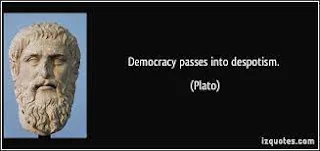Government Policies and its indebtedness
Persons in authority in Nigeria have hinted that the re-introduction of toll gates is imminent while at the same time facilitating the increase in the fees payable for vehicle plate numbers and the driver's license.
Before now, impoverished Nigerians have been contending with persistent darkness even though at present, electricity bills are strangulating.
Indeed, the high costs of foodstuff in the markets, the upward review of the Value Added Tax(VAT), PremiumMotor Spirit(PMS), and Kerosene are solid proofs that governance is on an unstable footing at all levels.
The ranking of Nigeria as fifth in the list of countries with high debt risk exposure only confirms that political office holders, both elected and appointed, have done almost nothing to reinvigorate the country's health system, eradicate hunger and poverty, create convincing and satisfactory employment, ensure the growth of businesses.
The Debt Management Office(DMO)has stated that Nigeriahasadebt of $11.5 billion to repay the World bank.
However, Nigerians wish to know if the policies, actions, and inactions of persons in authority are in tandem with the country's indebtedness.




Comments
Post a Comment